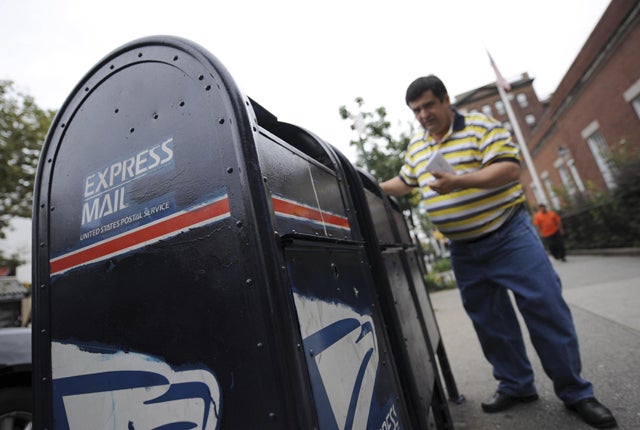Yesterday, faced with stiff congressional opposition to its plan to close over 3,600 post offices, the U.S. Postal Service (USPS) blinked.
It was hardly a profile in courage on either side, with Members of Congress unable to resist the reverse NIMBYist urge to protect their local post offices at all costs and the USPS not wanting to pick a fight with Congress and put other reforms at risk.
By any objective standard, the Postal Service’s plan to close some 3,600 retail branches was a sound one. According to USPS figures, the bottom 4,500 post offices take in, on average, a grand total of $52 per day and serve fewer than five customers. And, despite the rhetoric, the proposed closings were not exclusively in rural areas. New York City, for instance, had 34 post offices on the list. Washington, D.C., had 19, including several in government buildings such as the Capitol and the State Department.
Despite the controversy surrounding these closures, the money involved wasn’t large, with savings pegged at some $200 million per year. As a result, the Postal Service had to quickly come up with a Plan B, under which business hours at some 13,000 post offices would be significantly cut—to a little as two hours a day. This plan is expected to save $500 million annually.
Which plan is better? Frankly, it doesn’t really matter. With losses projected at as much as $20 billion annually, both plans—and more—should be adopted. When your ship is heading into an iceberg, you don’t debate whether to turn away or try to stop. You do both.
The USPS management does seem to get this. Despite dropping the post office closure plan, it is still holding firm on other proposed reforms. Significantly, this includes plans to close several hundred mail processing centers. This alone is expected to save $2 billion.
But it is not at all clear that Congress understands the gravity of the situation. Rather than recognizing that USPS is a failing enterprise that needs a radical overhaul in order to survive, legislators still are treating it as a source of federal largesse to be doled out. It’s a dangerous game, one that endangers both the USPS and the taxpayers, who doubtless will be asked to pick up the pieces. Congress should stop playing this game and allow the Postal Service to change.

































7 Replies to “Post Office Closures: NIMBYism Wins”